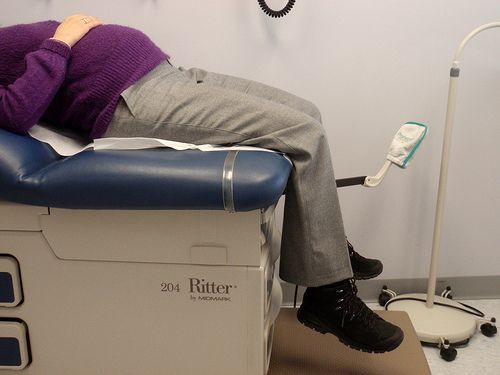Female Reproductive System Still Baffles Many Women; Nearly Half Believe Ovaries Produce New Eggs

Despite concerted efforts to bring sexual education to schools, the measures have been less than effective, as one new study forthcoming in Fertility and Sterility suggests many women still hold misguided or downright false beliefs about their own reproductive systems.
In the pursuit of careerism and other personal achievement outside the role of homemaker, growing populations of women are delaying childbirth until their thirties. While this enables them to better focus on these pursuits, it also elevates their risk for complications during pregnancy — a fact the present researchers fear may go unheeded given their latest findings.
For instance, the team found that 40 percent of women believed that their ovaries continue to produce new eggs during reproductive years, according to Lubna Pal, co-author and associate professor in the section of Reproductive Endocrinology and Infertility at Yale University. “This misperception is of particular concern, especially so in a society where women are increasingly delaying pregnancy," Pal said in a statement.
Pal and her colleagues collected data on 1,000 women between the ages of 18 and 40 via an online survey. The respondents comprised all ethnic backgrounds and represented each region of the United States. Experimenters questioned them on matters of reproductive health knowledge, attitudes, beliefs, and practices, along with other general pregnancy-related concerns.
The results were largely disappointing. Despite 40 percent of women expressing concerns over not being able to conceive, nearly half of all respondents had never discussed their reproductive health with a medical professional. Likewise, approximately 50 percent said they were unaware of the benefits afforded by multivitamins or folic acid during pregnancy, which greatly reduce a fetus’ risk of developing birth defects. One-quarter of women didn’t know that sexually transmitted diseases, obesity, smoking, alcohol use, and irregular menses can negatively affect fertility. And while regular trips to a reproductive health provider would shed light on these issues, 30 percent of women said they visit their provider less than once a year or never.
"This study, on one hand, brings to the forefront gaps in women's knowledge about their reproductive health, and on the other, highlights women's concerns that are often not discussed with health providers," said senior author Dr. Jessica Illuzzi, associate professor in the Department of Obstetrics, Gynecology & Reproductive Sciences at Yale, in the news release.
There were also a number of misconceptions regarding optimizing conception itself. Half of the respondents thought having sex more than once per day would make them more likely to conceive. In addition, more than one-third believed that elevating their pelvis during sex, or employing other sexual positions, would increase their chances. Perhaps most sobering, though, was the 90 percent of respondents who thought they were most likely to conceive after ovulation, rather than before it.
Women who choose to conceive later in life face a host of elevated risks because of their age. (80 percent of respondents knew this.) Women are born with a finite number of eggs, which, over time, degrade in quality. Women may have regular periods but do not ovulate as often. They face a greater risk for miscarriage, having a child with Down syndrome, and other chromosomal abnormalities.
Coupling these increased risks with an apparent unawareness has researchers concerned going forward. While all women should educate themselves on their reproductive health, those who choose to delay pregnancy past age 30 should take special care to discuss the relevant issues with their reproductive health provider.
"It is important that these conversations happen in this ever-changing family landscape,” Illuzzi said.
Published by Medicaldaily.com



























